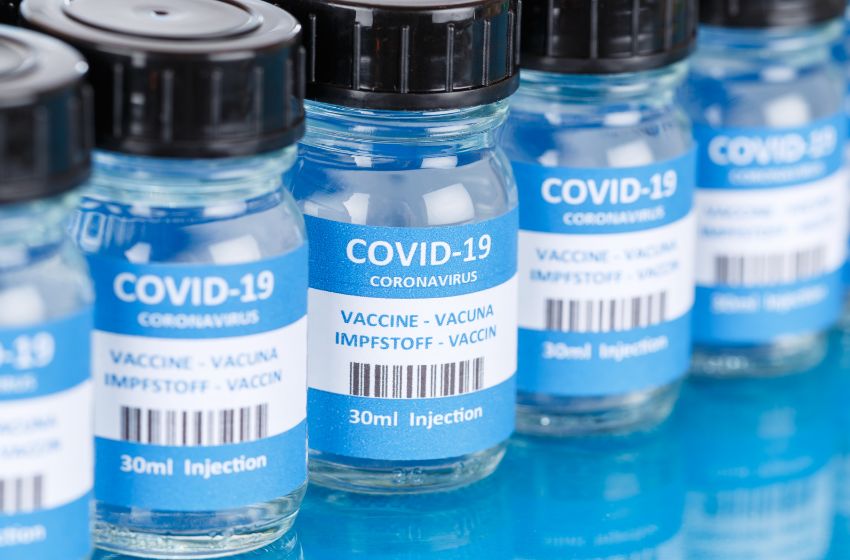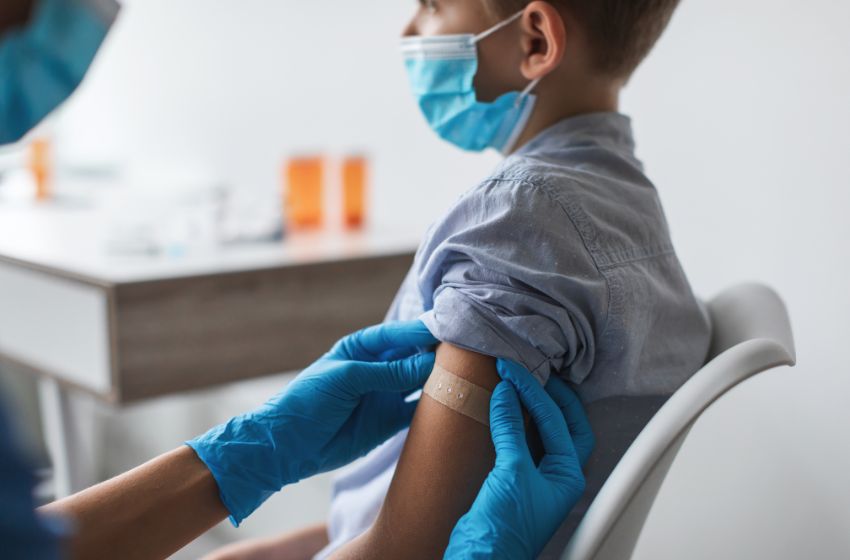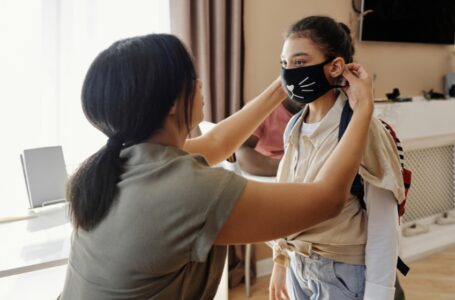ATAGI’s Recommendations on the use of the Pfizer COVID-19 vaccine for children aged 6 months to 4 years

Covid-19 can cause mild diseases like other viral infections in children; however, it can be fatal if they have underlying chronic diseases such as liver, kidney, and heart diseases. Besides, children with pre-existing complex health conditions are at risk of getting severe Covid-19.
Therefore, ATAGI (Australian Technical Advisory Group on Immunisation) suggests that children aged six months to < 5 years old with severe immunocompromise conditions should get Covid-19 vaccination.
Following are some of the severe or chronic health conditions:
- People who are undergoing bone marrow or stem cell transplant or chimeric antigen T-cell (CAR-T) therapy;
- Severe primary or secondary immunodeficiency, including those who are receiving cancer treatment. Patients who are taking immunosuppressive treatments, as mentioned in the ATAGI list advised taking the third primary dose of the COVID-19 vaccine. Other diseases include:
- Chronic neurological or neuromuscular conditions;
- Complex congenital cardiac disease;
- Structural airway anomalies or chronic lung disease;
- Type 1 diabetes mellitus;
- A disability that requires frequent assistance with daily activities, such as severe cerebral palsy or Down Syndrome (Trisomy 21).
ATAGI recommends
The parents must ensure their children take two primary doses, but the children with severe immunocompromise diseases must take three primary doses. Also, they must maintain the recommended interval of eight weeks between each dose.
Therapeutic Goods Administration (TGA) provisionally approved a paediatric formulation of the Moderna Covid-19 vaccine (Spikevax) on 19 July 2022. Hence, the vaccine is appropriate for use in children aged six months to five years. Also, it can be used for children aged six months to four years in the above categories.
ATAGI does not recommend vaccination for children aged six months to four years who do not belong to the aforementioned risk categories for severe COVID-19. This is because these children are not likely to suffer any serious illness due to COVID-19. However, this is still under continuous consideration depending on data related to epidemiology and the disease burden, vaccine supply, the developing data on vaccine use in this age group, and the availability of new COVID-19 vaccines for the aforementioned age group.
Children aged six months to four years’ parents should seek vaccination as soon as they can secure a vaccination clinic appointment.

ATAGI’s guidance highlights
The healthy children group aged six months to four years are at low risk and do not require hospitalisation. However, a small number of children who get hospitalised or pass away due to Covid-19 have additional medical conditions.
A clinical trial was conducted on approximately 5500 children aged six months to five years, which indicated that the Moderna Covid-19 vaccine provided moderate protection against infection (vaccine efficacy 35-52%) with the Omicron variant after two doses (25 mcg per dose). At the same time, safety data from the trial showed patterns of vaccine-related adverse events that are commonly seen in other age groups after mRNA vaccination.
Also, fever was a common after-effect in the age group mentioned above compared to older children and adults. Meanwhile, it is noteworthy that most side effects were mild to moderate and lasted approximately one to two days. Moreover, the trial also indicated that children who previously had SARS-CoV-2 infection were more likely to undergo the vaccination’s side effects.
The vaccine efficacy data indicated to be against infection with early Omicron variants. There might be differences in efficacy against the SARS-CoV-2 subvariants BA.4 and BA.5 that are presently circulating. Modest efficacy against infection indicates that protection will predominantly be against severe illness rather than infection. However, this clinical trial had insufficient episodes of severe disease to assess this specific outcome.
Data related to benefits in children with complex medical issues or severe immunocompromise are currently limited. Still, the health advisory board recommends vaccination based on first principles and evidence of vaccine benefits in people of different age groups.
One out of four children of the same age group suffered a fever after taking the Moderna vaccine, with higher rates seen in people who previously had Covid-19.
Also, fever in this age group can sometimes result in medical review and/or investigations. At the same time, it triggers a febrile convulsion, so this vaccination’s side-effect profile needs to be considered in the risk-benefit discussion.
Insufficient evidence suggests that infant and children’s vaccination would have any impact on community transmission.
ATAGI points out that there are currently constraints on the global availability and domestic supply of the Moderna vaccine for children who are six months to four years, which may continue until any other brand, variant-based or bivalent vaccines become available for this age group. Vaccine supply was one of the several considerations in the ATAGI suggestions for this age group.
ATAGI is responsible for monitoring the evolving evidence regarding the uncertainty of vaccine effectiveness, protection duration, and vaccine safety in this age group. Besides, it would also keep track of data on febrile convulsions and the safety of co-administration with other vaccines. Also, it would consider rare adverse events such as myocarditis/pericarditis (noting very few cases of vaccine-associated pericarditis or myocarditis in the 5-11-year-old age group).
ATAGI will continue to update its recommendations with the availability of alternative brands of Covid-19 vaccines for the 5-11-year-old age group. Moreover, depending on the COVID-19 epidemiology changes and the emergence of new variants, the advisory group will update its recommendations.

Dosing and Schedule
ATAGI recommends that children aged five to eleven take two vaccine doses eight weeks apart with a minimum interval of 4 weeks for the Moderna vaccine in particular circumstances.
The Health Advisory group recommends 25 mcg of Moderna dosage for this age group in comparison to a 50 mcg dose for children aged 6 to 11 years and a 100 mcg dose for people aged 12 years and over.
The Moderna vaccine for children who are aged six months to four years is a new formulation (blue cap vial) with a unique concentration of 100 mcg/mL in multi-dose vials containing ten doses, each 0.25 mL. Therefore, ATAGI reminds doctors to be vigilant regarding the potential for dosing errors with the Moderna vaccine in all children. Besides, they must ensure to select the correct formulation for the child’s vaccination.
Children with severe immunocompromise must get a 3rd primary dose eight weeks after the 2nd dose. (minimum of four weeks in exceptional circumstances, e.g., when there is anticipated intensification of immunosuppression). This advice is based on the first principles of decreased immune responses seen in other age groups with these conditions after only two doses. Check the ATAGI advice on a third primary dose of the COVID-19 vaccine in severely immunocompromised individuals.





